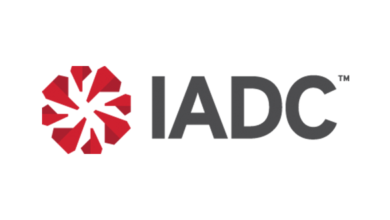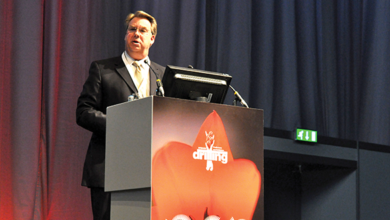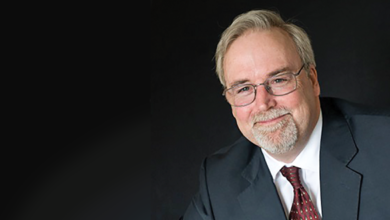People, Companies & Products September/October 2018
Independence Contract Drilling, Sidewinder to merge
Independence Contract Drilling (ICD) and Sidewinder Drilling have announced their entry into a merger agreement in which ICD will acquire all outstanding equity interests in Sidewinder. The merger will combine two pad-optimal drilling fleets and operations focused on the Permian and other basins in Texas and its contiguous states.
Upon closing of the transaction, ICD will more than double the size of its pad-optimal rig fleet to 34, following modest upgrades to five Sidewinder rigs.
The combined company’s board of directors will consist of four existing ICD board members, including ICD’s Chairman of the Board, Thomas R. Bates, as well as two members appointed by the controlling owners of Sidewinder. The combined company’s management team will be led by Anthony Gallegos, Sidewinder’s current President & CEO, who also will serve as a director of the combined company, and Philip Choyce, ICD’s current Executive Vice President & Chief Financial Officer. The merger agreement and merger have been approved by the boards of directors of both companies and have received the approval of the unitholders of Sidewinder.
TWMA acquires Dynamic, appoints rouse as NAM director

TWMA has announced its acquisition of Dynamic Oilfield Services in an eight-figure deal as part of its growth strategy. Dynamic Oilfield Services deploys its solids control and surface equipment divisions in some of the most prolific onshore basins in the US. The acquisition has seen Bill Rouse appointed as TWMA North America Director.
Diamond, Trelleborg tech license extended
Following the manufacture of four strings of Helically Grooved Buoyancy for Diamond Offshore Drilling’s “Blackship” vessels, the contractor has extended the exclusive license for Trelleborg’s offshore operation to this patented technology until 2029. Helically grooved buoyancy is a joint development that integrates VIV suppression and drag reduction with drill riser buoyancy.
NOV, Saudi Aramco propose land drilling joint venture
National Oilwell Varco (NOV) has announced the signing of an agreement with Saudi Aramco to form a joint venture in Saudi Arabia. It will provide high-specification land rigs, rig and drilling equipment and offer aftermarket services. Additionally, the proposed joint venture will establish an education center to train Saudi technicians in the maintenance and operation of advanced drilling technologies.
The joint venture will be supported by a commitment from the previously announced Saudi Aramco Nabors Drilling Company to purchase 50 onshore drilling rigs from the NOV/Saudi Aramco joint venture over a 10-year period.
Volant appoints manager for Houston facility
Volant has announced that Aaron Sinnott is joining the company as General Manager, Volant Oil Tools US. Mr Sinnott has 25 years of experience in tubular running services and well integrity. Volant is also opening a location in Katy, Texas. The facility will be 20,040 sq ft, with 16,425 sq ft dedicated to shop/warehouse activities.
Tenaris to restart Conroe mill after 3-year suspension
Tenaris has announced it will restart select areas of its mill in Conroe, Texas, following a three-year suspension of operations. The mill will support the company’s ramp-up of seamless activity in the US, with the heat treatment and finishing of pipe products.
Reactive Downhole tools targets growth in us

Reactive Downhole Tools has appointed Jonathan Brian as Senior Business Development Manager to support growth plans in the US. The appointment comes as the firm invested $350,000 into its Houston-based manufacturing and testing facility to support its new wellbore cleanup product line, CHIMERA.
Gardner Denver opens shop in Oklahoma City
Gardner Denver has opened a 25,000-sq-ft facility in Oklahoma City, Okla., to service frac, drilling and production customers. The new repair center can service up to six frac units and is equipped with five technical service team members.
Shale Support acquires 2 mines in Louisiana
Shale Support has closed on a deal purchasing two natural mines in Kinder and Central Louisiana. This expansion adds 2 million tons of nameplate capacity, increasing the company’s total capacity to 5 million tons annually.
M&I Electric wins contract for offshore platform
M&I Electric has been awarded a $3 million contract to provide a power delivery solution for a new North America-deployed offshore drilling platform. The project award includes low-voltage AC variable frequency drives.
American Block appoints new division manager
American Block has opened a second US-based repair and service center in Oklahoma City, Okla. Randy Little has been appointed as Division Manager to oversee the 20,000-sq-ft facility.
Deep Casing Tools appoints new region manager
Deep Casing Tools has appointed Neil Hathaway as Region Manager for the Middle East division, to be based in the UAE. Mr Hathaway has 28 years of international experience in the oil and gas sector. The company recently secured a long-term contract with a national oil company in the Middle East to provide its drillable turbine technology.
Precision Drilling announces officer appointments
Precision Drilling has appointed Shuja Goraya as Chief Technology Officer and Darren Ruhr as Chief Administrative Officer.
Mr Goraya, who has more than 24 years of experience in the oil and gas industry, will lead the company’s strategic drilling technology initiatives to enhance drilling process efficiency. Mr Ruhr, who joined Precision in 1997, will oversee corporate business systems and network infrastructure, human resources, organizational effectiveness and performance, real estate and facilities.
PRODUCTS
Varel launches FORCE shaped cutters to improve ROP

Varel Oil & Gas Drill Bits has launched FORCE, a set of cutter geometries designed to fine-tune interaction with the rock. OVAL, TRIFORCE, SCOOP and FANG cutters make up a specialized toolbox for improving efficiency and ROP. The shaped cutters, with raised ridges, concave faces and other non-standard geometries, interact with the rock in different ways to achieve specific results, such as torque reduction, pre-fracturing the rock and progressive back rake.
ELK series electric chain hoist simplifies maintenance
Ingersoll Rand has introduced the ELK Series Electric Chain Hoist with modular features that reduce maintenance time and the amount of training required. The hoist’s weight and accessibility means it can often be serviced while mounted. The self-contained gearbox also includes permanent lubrication. It is available in capacities ranging from 1/8 ton to 1 ton, with capacities up to 5 tons available later in 2018.
Reveal Energy Enhances IMAGE Frac Technology
Reveal Energy Services is enhancing its IMAGE Frac pressure-based fracture maps with a new platform. Parallel processing will be used with algorithms to determine fracture geometry for complex pad operations in multiple zones. The platform enables the company’s geoscientists and completion engineers to rapidly and consistently compute 3D fracture map geometry of half-length, height, asymmetry and azimuth without interpretation subjectivity, vital for operators to lower multizone completion costs and increase production.
Seal-Glide Nano improves friction capabilities
Trelleborg Sealing Solutions has developed Seal-Glide Nano, a surface treatment that improves friction and stick-slip properties of elastomer seals while having little or no effect on the performance of the compounds from which the seals are made. The coating is just a few hundred nanometers, 10 to 50 times less than typical coating thicknesses. It is suited for classic O-Rings and complex molded parts for a wide range of applications.
National Oilwell Varco has announced the commercial launch of GoConnect condition monitoring services for intervention and stimulation equipment, which uses machine learning to provide data-driven insights into the condition, health and performance of customers’ equipment and operations.
Halliburton introduces hybrid separation system
Halliburton has announced its BaraOmni hybrid separation system, a separation technology that removes ultra-fine low-gravity solids (LGS). In West Texas, the system was used to treat ultra-fine solids laden, non-aqueous drilling fluid. The technology reduced solids from a 24% concentration LGS to 3% LGS.
A2B developed to reduce risk of dropped loads
Keppel LeTourneau has developed the Anti-Two Block (A2B) system, which can be modified to fit most cranes in the market today. Weighing under 50 lb, the A2B has an expected life span of more than 10 years and is made of forged stainless steel and high-impact polymer to resist corrosion. It also utilizes a dual chain suspension system to resist spinning. Further, wide stabilizing arms cater to high winds and pitch and roll motions.
New P4.1 chain improves reliability, safety
Building upon its P4 system, igus has launched the P4.1 chain with improved friction and wear values. The new roller chain has twice the service life of the previous version and is easier to assemble.




